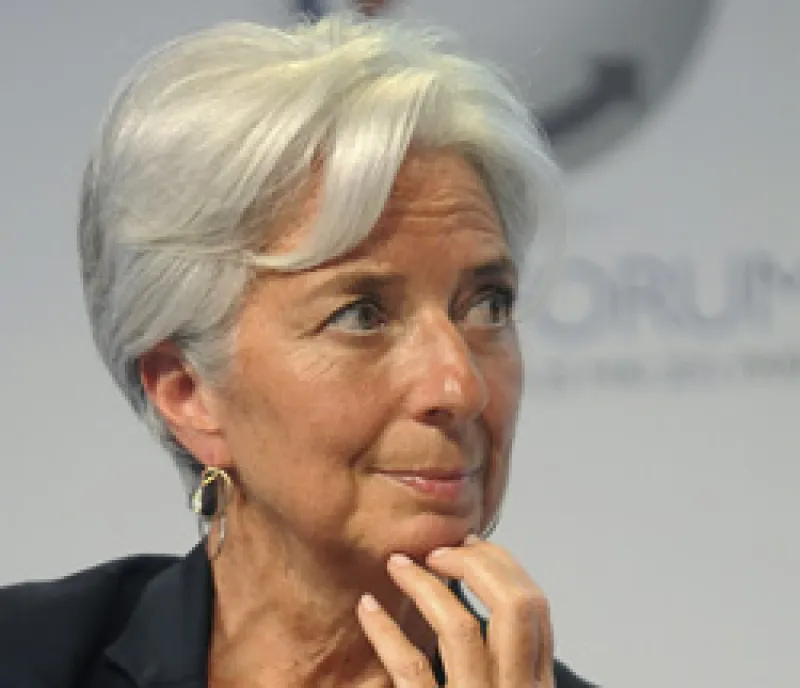
Christine Lagarde, France's finance minister, gestures during the e-G8 Internet Forum in Paris, France, on Tuesday, May 24, 2011. The Internet needs government involvement to reach its full potential of linking people and boosting economic growth, French President Nicolas Sarkozy said. Photographer: Antoine Antoniol/Bloomberg *** Local Caption *** Christine Lagarde
Antoine Antoniol/Bloomberg

